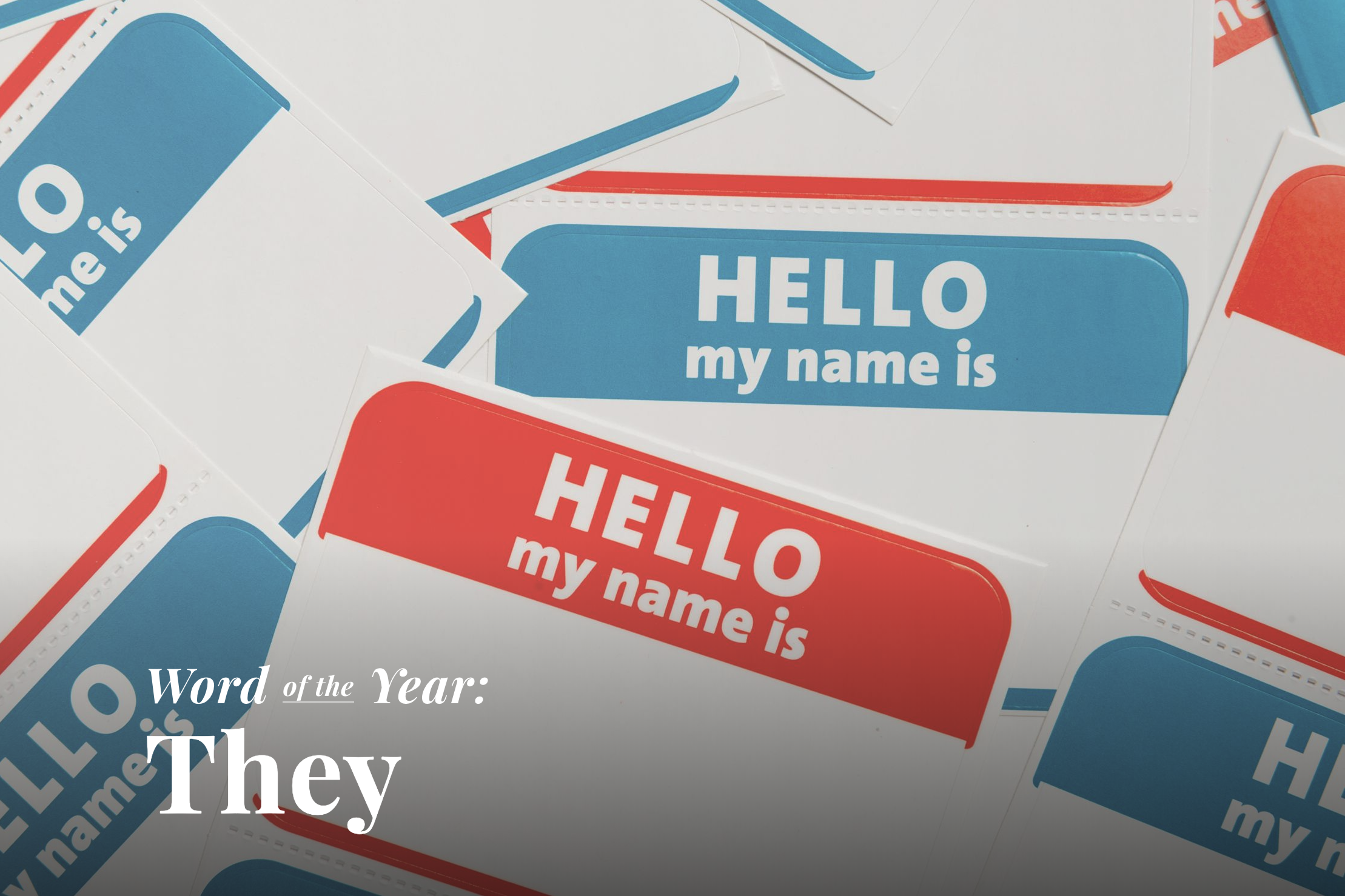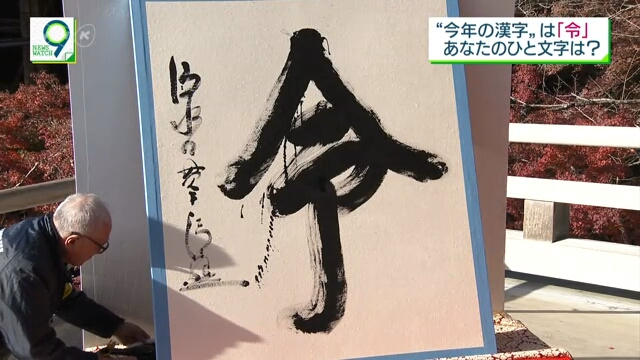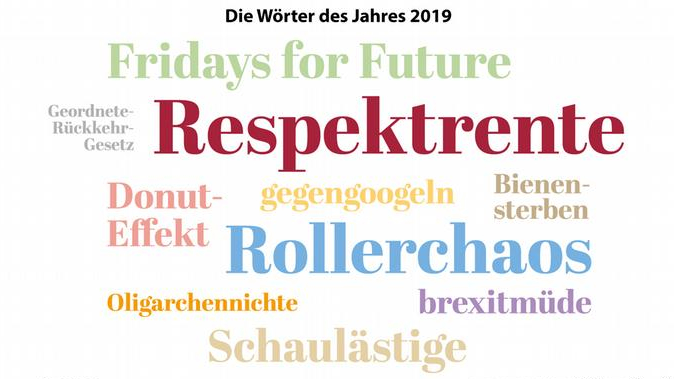Every year institutes, associations and publishers delve into the zeitgeist to select the words of the year. As 2019 comes to an end, CGTN brings you a collection of their annual selections for 2019. Check it out to see what they say about the world in the past year.
Six days ago "wen," meaning stability, and "nan," the Chinese equivalent to difficulty, were chosen as the 2019 Chinese characters of the year. "Wen" focused on domestic topics while "nan," was the word chosen for international topics by the Chinese National Language Monitoring and Research Center and The Commercial Press.
"Wen" reflects China's commitment and efforts in maintaining stability in response to the fast-changing international arena during the past year. Meanwhile, the 2019 buzzword in the international arena could be seen as a reflection of the international environment. Held for 14 consecutive years, the annually buzzword selection again witnessed how country and people record their lives by way of language as well as describing social changes in China and the world.
"Climate emergency" has been crowned 2019 Word of the Year by the Oxford Dictionaries, rounding off a year of increasing concerns about climate change and the "potentially irreversible environmental damage resulting from it."
The use of "climate emergency" was 100 times as common in September this year compared with 2018, according to a report by the World Economic Forum, revealing a demonstrable escalation in the language people are using to articulate information and ideas about how rapidly the world is changing.

Merriam-Webster chose "they" as its 2019 Word of the Year. /Screenshot via Merriam-Webster.com
Merriam-Webster chose "they" as its 2019 Word of the Year. /Screenshot via Merriam-Webster.com
Believe it or not, this common pronoun is what Merriam-Webster, the prestigious American dictionary chose for the word of 2019. After being redefined as a gender-neutral pronoun, "they," instead of a word meaning more than one person that has been adopted for hundreds of years, was found increasingly used other than "he" or "she" to describe a non-binary person.
According to the dictionary publisher, searches for "they" have risen 313 percent than they were in the last year, urging them to take this simple yet forceful word into consideration.

Rei, meaning order, command or auspicious, was selected as Kanji of the year 2019. /Screenshot via NHK
Rei, meaning order, command or auspicious, was selected as Kanji of the year 2019. /Screenshot via NHK
The character "rei," derived from the name of Japan's new imperial era "Reiwa", was chosen as the Kanji of the year, according to the Japan Kanji Aptitude Testing Foundation.
Rei, meaning order, command or auspicious on its own, reflects the Japanese people's desire for happiness and a brighter future in the new era that began after Emperor Naruhito ascended to the throne on May 1, 2019.

The Society for the German Language has picked the term "respektrente" as the German Word of the Year. /Screenshot via DW.com
The Society for the German Language has picked the term "respektrente" as the German Word of the Year. /Screenshot via DW.com
The Society for the German Language has picked the term "respektrente" as the German Word of the Year. Meaning "respect pension" in English, the word was first coined by Federal Labor Minister Hubertus Heil to refer to the planned changes in pension laws in Germany for men and women who, despite having worked for many years, only have a small pension.

The Australian National Dictionary Center's 2019 word of the year is "Voice." /Photo via Australian Associated Press
The Australian National Dictionary Center's 2019 word of the year is "Voice." /Photo via Australian Associated Press
The Australian National Dictionary Center's 2019 word of the year is "voice," as in indigenous voices contributing to the making of laws and policies.
The center is a joint project between Australian National University and Oxford University Press. At its Word of the Year contest each year, it crowns a word or phrase that best summarizes the year and is "lexically interesting and Australian."
According to the center, the usage of "voice" has soared over the course of 2019, as the concept of recognizing an indigenous voice became a more talked-about topic across the country.

The Chinese character "Pian" was voted as the Word of the Year for Malaysia in 2019. /Photo via Sin Chew Daily
The Chinese character "Pian" was voted as the Word of the Year for Malaysia in 2019. /Photo via Sin Chew Daily
This year, Malaysian residents voted the Chinese character "Pian," which can be translated as cheating or lying, as the word of 2019.
A large number of Malaysians have fallen victim to spams. The country was named one of the top 20 countries affected by spam calls in 2019, according to a survey conducted by smartphone application Truecaller.
Goh Hin San, president of Malaysia Han Culture Center, said, "This character seems negative at face value, but is actually a good thing looking on the bright side of things. Wouldn't it be a good thing to pinpoint what went wrong early on?"

A group of professors selected "gongmyeongjijo" as an idiom that best describes the society of South Korea this year. /Picture via Yonhap
A group of professors selected "gongmyeongjijo" as an idiom that best describes the society of South Korea this year. /Picture via Yonhap
This is not a messy code, actually, but a phrase selected by a group of South Korean professors in an aim to best describe the state of the country this year.
"Gongmyeongjijo", the four-character Chinese idiom is found in Buddhist scriptures, referring to a two-headed bird in which each head believes it could survive without the other, and yet they share a common destiny. Selected by 347 professors, the word conveys people's great concern of the extreme ideological division that has given rise to a conflict detrimental to society.

People come and pay homage outside the home of Dahia Khellaf, a mother who was found dead with her two young children in Quebec on December, 11, 2019. /Photo via La Presse
People come and pay homage outside the home of Dahia Khellaf, a mother who was found dead with her two young children in Quebec on December, 11, 2019. /Photo via La Presse
French dictionary Le Petit Robert has named "féminicide" its word of the year.
Translated as femicide in English, the word mainly refers to the killing of a woman or girl, in particular by a man and on account of her gender. The term was once reserved for academic circles but has now become a part of the everyday language.